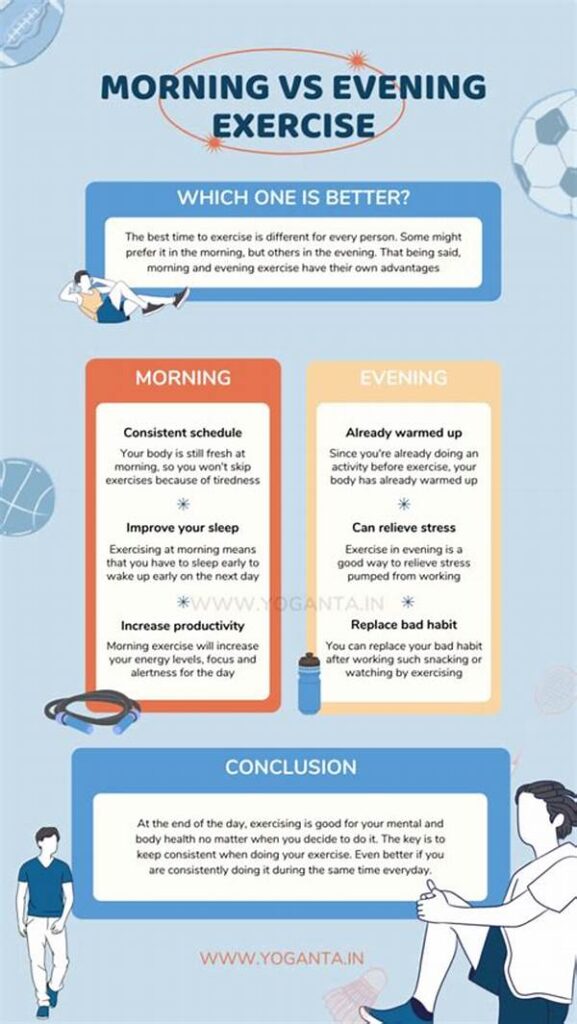H1: Deep Work Morning vs Evening: Which Wins?
Read More : Deep Work Spaces That Inspire Concentration
In the hustle and bustle of the modern world, productivity is more than just a buzzword—it’s the key to success. The concept of “deep work” has become a popular topic of discussion in professional circles, as it refers to the ability to focus intensely on demanding tasks without distractions. However, a question remains: when is the best time to engage in deep work? Is it the energizing calm of the morning or the tranquil quiet of the evening? This debate, coined as “deep work morning vs evening: which wins?” has intrigued many, challenging us to examine our productivity patterns.
Mornings often symbolize a fresh start. The air is crisp, and the possibilities for the day are endless. For many, this is the time when their minds are clear, motivation is at its peak, and distractions are less prevalent. Research indicates that our cognitive faculties are primed for analytical tasks shortly after waking. As the day goes on, however, fatigue sets in, potentially leading to diminished focus and effectiveness. On the other hand, the evening has its own appeal. As the world quiets down, a serene environment emerges. This time allows for reflective thinking, uninterrupted by daytime stresses. Night owls argue their creativity and clarity shine after sunset, providing an introspective space perfect for deep work endeavors.
Evening Mindfulness: The Contender for Deep Work Time
Despite the research favoring mornings, evening deep work advocates highlight significant benefits. Known for clarity and calm, the evening provides a backdrop for creative thought and less interruption. Some individuals find they thrive under the cover of dark, away from societal bustle, where their best ideas flourish. Thus, this brings us back to the all-important question: deep work morning vs evening, which wins?
H2: Factors Influencing Deep Work Success in Mornings and Evenings
The stringent discipline required for deep work might make mornings ideal for those disciplined by nature, but creative night owls find their muse under the stars. Ultimately, personal productivity hinges on several factors—such as lifestyle, type of work, and energy levels. Indeed, survey statistics show high variability, with about 40% of people claiming to produce higher quality work in the early morning, while another solid 30% vouch for the night. This reinforces that knowing oneself is crucial before categorically choosing deep work morning vs evening as the winner.
Understanding the Deep Work Debate: Morning vs Evening
The crux of the “deep work morning vs evening: which wins?” conundrum is understanding personal productivity patterns. To unravel this debate, we need to delve deeper into the science, testimonies, and subjective experiences that define productivity.
Scientific studies have consistently pointed towards a pronounced peak in cognitive function in the early morning hours. This aligns seamlessly with our natural circadian rhythm, suggesting that biological factors make mornings a naturally more productive time for deep work. This physiological predisposition can be harnessed to tackle analytical and complex tasks requiring intense focus. The so-called “morning larks” thrive during this time, empowered by their natural energy peak and the absence of the day’s distractions. This lends a strategic advantage to structured tasks requiring concentration.
Conversely, the evening has its own allure, especially for the “night owls” among us. When the world aligns towards rest, certain individuals experience a cognitive awakening. The reduced sensory input and quiet surroundings provide a fertile ground for creativity to blossom. This time is often dedicated to more reflective and creative tasks, where the risk of daytime disturbances is minimized. Emotional and contextual factors add nuance to the debate, suggesting that evening might be the undisputed winner for particular tasks and professions.
Statistical evidence emphasizes individuality over generalization. For instance, a significant portion of creative professionals – artists, writers, and designers – tend to lean towards the evening for the uninhibited thought and reflection it affords. One might ask how companies incorporate this variance into productivity enhancement for their workforce. Flexible schedules can significantly boost overall output by allowing employees to engage in deep work during their personal peak hours.
H2: Crafting the Ideal Deep Work Schedule
Understanding whether deep work is best suited for morning or evening requires personal introspection. Herein lies the value of trial and reflection. Begin by analyzing productivity throughout the day, employing productivity tools or journaling daily progress. This data offers insight into which period aligns best with your deep work efforts.
H3: Testimonials of Peak Productivity
Real-world examples bring depth to this debate. Consider Joshua, a freelance programmer, who claims morning sprints eliminate cognitive fatigue and daily distractions, ensuring optimal performance. Conversely, Sarah, a novelist, finds her creative juices meshing beautifully with the tranquility of late-night hours. Regardless of when we find our productivity zenith, the most crucial step is identifying personal patterns and wisely scheduling work around them. This strategic alignment propels the ongoing debate: deep work morning vs evening, which wins in your scenario?
UL: Discussion Points on Deep Work Morning vs Evening
Deep within the “deep work morning vs evening: which wins?” discourse, we find a matrix of human behavior, scientific evidence, and personal experience artfully weaving together a productivity tapestry.
H2: Customizing Deep Work Based on Personal Rhythms
For many of us entrenched in the ongoing struggle against time, understanding our biological clock becomes paramount.
H3: The Science of Timing in Deep Work
Aside from preferences, adapting to productivity windows requires sensitive calibration. This prioritization ensures your most crucial tasks receive optimal attention at the right juncture. Carefully planning breaks and maintaining a balanced lifestyle increases the chances of daily triumphs in the contest of deep work morning vs evening, without explicitly choosing a victor.
Stepping further into this world, we uncover tailored tactics for balancing external demands with internal capabilities. Remember, the effectiveness of deep work hinges not just on choosing a morning or evening slot, but on harmonizing these decisions with the grander scale of personal wellbeing and professional obligations.
H2: Short Explanations on Deep Work Morning vs Evening
Clear mind and heightened focus: The ideal combination for deep work.
Quietude fosters creativity and reflection, key for certain professions.
Integrate both times for varied tasks, ensuring holistic productivity.
Success stories varied; individual experiences show no one-size-fits-all.
Choosing work patterns aligned with innate rhythms optimizes efficiency.
Testing and reflecting establish personal peak productivity times.
Workplaces with flexibility boost productivity by catering to worker preferences.
Breaking the illusion of a single perfect time encourages adaptive strategies.
Understanding the nestled intricacies isn’t merely academic—it’s strategic. Take charge of your schedule: embrace experimentation, capitalize on your findings, and overcome the deep work morning vs evening debate. Winning here means aligning work with your rhythm, inevitably crafting a more productive, fulfilled, and balanced life.


